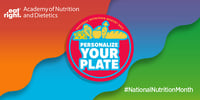If you've glanced at a magazine or online health site lately, you've probably been bombarded by the term 'superfood'. This is a term that is bandied about haphazardly, and often misunderstood, causing people to overeat (or just simply eat) the wrong foods.
There is no true scientific definition for the term 'superfood'; it is just a term that the nutrition world came up with to signify a food that is full of nutrients that keep the body healthy. While there are many foods out there that are good for you, you should never focus on just one, especially if you are focusing on it simply because it’s part of a current craze.
Here are five myths about healthy foods that you can learn from:
1) Coconut Oil: You have probably heard a great deal about coconut oil. It's been touted as a cure-all for nearly everything that ails you. Unfortunately, while coconut oil has been called a 'healthy oil', it is actually very high in saturated fat. While most people claim that it is okay to substitute this oil in everything from baking to frying to sauteing, as it is a medium-chain triglyceride (which would make it a less damaging form of saturated fat), there is no significant research to back up this claim.
Many experts still say that cooking with olive or canola oil is better, as they have the lowest amount of saturated fats.
 2) Egg Whites: For years it seems you have heard conflicting information when it comes to eggs. One study says don't eat the yolks, the next study says eat the entire egg. Today, the science seems to have come to a consensus: eat the yolks, folks!
2) Egg Whites: For years it seems you have heard conflicting information when it comes to eggs. One study says don't eat the yolks, the next study says eat the entire egg. Today, the science seems to have come to a consensus: eat the yolks, folks!
Once upon a time, yolks were removed because they are high in cholesterol, but not today. Today, nutritionists agree that without the yolks, you lose half the benefits of eggs. The yolk contains all of an egg's fat-soluble vitamins; vitamins A, D, E, and K. Yolks also contain a number of other nutrients, such as choline and selenium.
3) Granola: Granola may have a reputation as a healthy food, but it is actually loaded with calories, sugar and fat. If you've ever added granola to your diet and started gaining weight, it is probably the culprit. For granola lovers, don't worry, you don't have to cut it out of your meal plans entirely, just eat it (like all things) in moderation.
4) Kombucha: One of the newest buzzwords in the health and nutrition market is kombucha. Kombucha is a black tea that is fermented with yeast, bacteria and sugar. The hype is that it can detox the body, give you more energy, improve your digestion, and even enhance your immune system. The truth? There is no proof for any of this. Studies show that it does no more for you than yogurt or popping a probiotic pill.
 It's also important to note that there have been some contamination issues with kombucha, involving bacteria and fungus, which can be very dangerous or anyone with a weakened immune system (such as older people, very young people, or pregnant and nursing mothers).
It's also important to note that there have been some contamination issues with kombucha, involving bacteria and fungus, which can be very dangerous or anyone with a weakened immune system (such as older people, very young people, or pregnant and nursing mothers).
Remember, there are plenty of teas out there that are very healthy, with their health claims backed by science. Teas contain flavonoids which will help reduce your risk of heart disease.
5) Veggie Burgers: While they may not be enjoying the heyday that they once did, veggie burgers are still around, and many people believe that they are a healthier option than fresh meat burgers. Not so. Most veggie burgers that you buy in your grocer's freezer section are heavily processed and have ingredients included that you cannot pronounce.
If you must eat a veggie burger, make sure to read the ingredient list and opt for ones with less ingredients (the more minimally processed choices). But if you were simply eating veggie burgers to save calories, opt for a fish-based burger, a turkey burger, a ground chicken burger or a lean red meat burger. Typically these will offer you more nutrition, fewer chemical additives, and fewer calories.
Variety is the Spice of Life
The Dietary Guidelines for Americans stress variety. Remember that no single food can provide every single nutrient that your body needs to function properly, so your best bet is to eat a variety of healthy foods.
If you are looking for healthy meals delivered, look to GA Foods. Download our free eBook to learn more about selecting a home-delivered meals provider.











